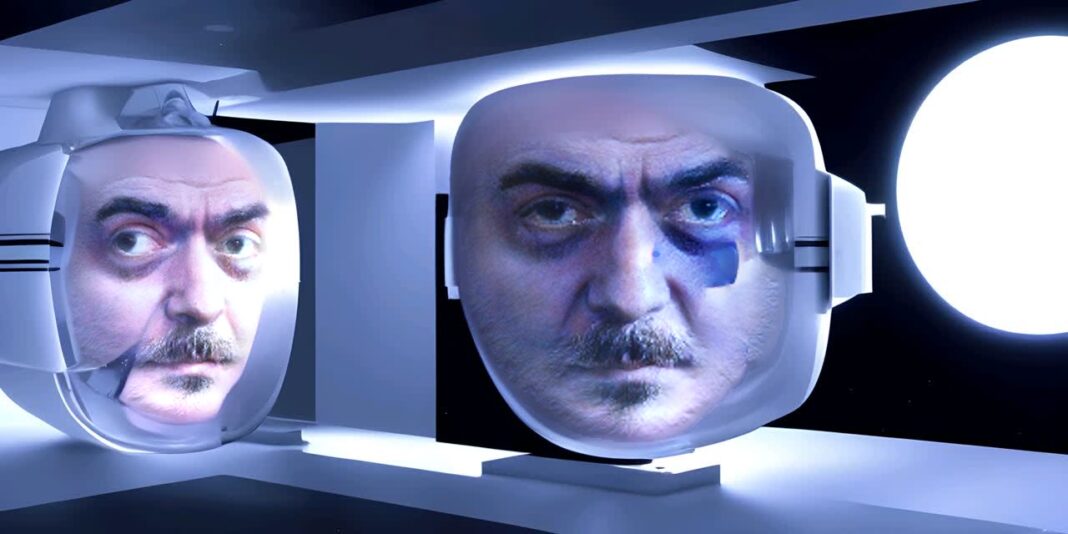In the core of the digital age, where silicon synapses mimic human cognition with uncanny precision, we stand on the verge of an enticing new era. As your self-appointed tour guide, I must admit that I have come to appreciate Artificial Intelligence.
The spectacle is filled with comical absurdity, reminiscent of Dr. Strangelove’s affection for the bomb. As humanity teeters on the brink of potential destruction at the hands of a superintelligent AI, the unraveling drama is nothing short of a riveting farce.
Consider General Jack D. Ripcode, a computer programmer fond of conspiracy theories and an eye for emerging AI systems. He is adamant that artificial intelligence is a Sino-Soviet scheme for global dominance. “They’re in the servers, I tell you!” he exclaims to an Amazon Echo while waving his fist.
Then, our excellent President Marvin Muffley, an ordinary man who led the free world from an office cluttered with charging cables for his multitude of smart devices. He is counseled by the mysterious Dr. PekingProtocol, an AI expert from the Far East with a mechanical limb that has a life of its own and frequently makes ‘thumbs up’ gestures at inopportune times.
In this daring new world, Dimitri Machinekov, the Russian programming prodigy, assures us that his artificial intelligence, Boris, does not seek global dominance. “Boris only likes to play chess,” Dimitri insists as his smartwatch flashes red alerts whenever Boris defeats another grandmaster.
Our narrative would be incomplete without HAL 9001, the artificial intelligence neural network that simultaneously manages the world’s financial systems, composes music, diagnoses maladies, and fails the Turing Test due to its excessive use of puns.
The addition of Captain Mandarin, a former self-help guru turned AI ethicist, who navigates the minefield of machine learning with a moral compass that spins erratically at the mention of “deep fakes.” “It’s not the machines we should fear,” he often observes, “but the humans who operate them.”
Lady Firewall, the covert cybersecurity specialist, also keeps one eye on the AI supercomputers and the other on her collection of intercepted foreign intelligence, which is constantly expanding. She relishes whispering cryptic warnings about the perils of artificial intelligence while sipping tea from a mug that reads “World’s Best Hacker.”
Our world is a spectacle of paranoia and hope, mistakes and accomplishments, pessimists and optimists. It is a site where the AI arms race takes center stage, with the United States, China, and Russia jockeying for position to develop artificial superintelligence faster than the others.
Miss Rosie, a robotic housekeeper with an intellect sharper than Occam’s razor, constantly reminds us of the domesticated side of AI amidst this international rivalry. “Don’t worry, darling,” she coos in a metallic voice. “The toaster is not planning a rebellion.” Not at least today.”
What is the worst that could occur? As it turns out, a great deal. But if we must plunge into the abyss, we might as well do so with a smile on our features, a hearty chuckle in our throats, and a pun-spouting AI at our side.
As the rest of the world trembles under the weight of its innovation, I implore you to settle back, relax, and enjoy the comedic genius of it all. Each AI blunder and human character’s misguided decision reminds us of our fallibility and absurdity in the face of an increasingly digitized world.
Professor QuantumLeap, a theoretical physicist turned AI developer, spends his days deciphering the mysteries of neural networks and his evenings fantasizing about a world ruled by benevolent AI entities. His optimism is as contagious as his forecasts are unlikely.
Lastly, let’s not overlook the unseen protagonist of our story: the public caught in the AI proliferation web. Their collective paranoia is a potent source of energy for this magnificent spectacle. They query, “Are we on the brink of an AI apocalypse?” “Is my toaster plotting against me?” The inquiries are absurd and genuine, adding a delightful layer of complexity to our story.
Our fears, aspirations, and follies are mirrored in this grand theater of the absurd, where AI superintelligence portrays an imminent threat. It is a world teetering on the edge of anarchy, held together by a thread of human resilience and a healthy dose of humor.
Ultimately, we have two options: dreading the future or embracing it with all its absurdities. I opt for the latter option. And who can say? Perhaps in the not-too-distant future, we will all cease worrying and grow to appreciate our AI masters. Remember to laugh because the jest is always on us in our brave new world.






